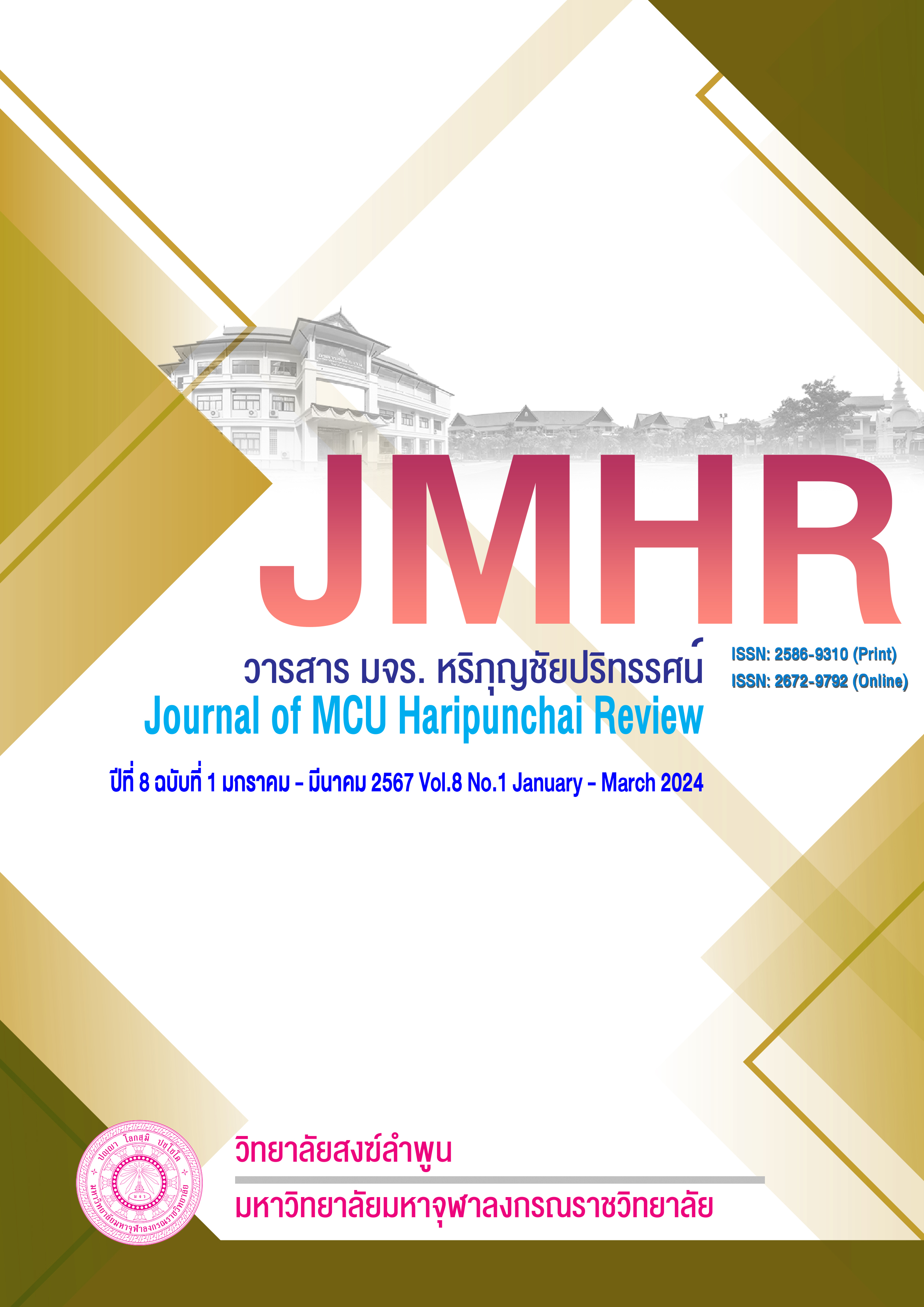The legal problem and legal measures for labor protection of food delivery platforms in Thailand
Main Article Content
Abstract
This research has the following objectives: 1) To study the employment status of laws related to the protection of labor rights for food delivery service providers through platforms, 2) To compare the laws related to the protection of labor rights for food delivery service providers through platforms in Thailand with those in the United States and the United Kingdom. 3) To seek ways to legislate to provide protection for food delivery service providers on par with regular employees under labor laws. The research methodology used is qualitative documentary research. The target group is laborers working as food delivery service providers through platforms. The research tools include collecting data from books, journals, academic documents, and conducting internet searches related to relevant concepts and theories. Data analysis involves prioritizing and comparing information from various documentary sources, including Thai laws, foreign laws, theories, and concepts, to explore ways to protect the labor rights of food delivery service providers through platforms in Thailand in the future.
The research finding
1) The food delivery service provider through platforms represents a transformation in the food delivery service, where employees of establishments are replaced by a delivery system through an intermediary between customers and restaurants. However, the current issue with food delivery service providers through platforms in Thailand is that the companies owning the food delivery platforms have specified in their contracts that the providers are considered independent contractors rather than employees of the platform owners. Consequently, these food delivery service providers through platforms do not have the same legal protections as regular employees under labor laws. This research article aims to investigate the issue of the status of food delivery service providers through platforms and whether they receive any legal protections under labor laws. The study found that the status of food delivery platforms in Thailand is not as legally protected as in the United Kingdom. But the working conditions are significantly different. In contrast, in the United States, California, these providers are classified as employees and are entitled to legal protections under labor laws. Therefore, Thailand should have legal measures to protect food delivery service providers through legislation on employment status, ensuring their protection in terms of minimum wage, working hours, holidays, leave, compensation, social security, and employer liability, equivalent to regular employees.
Article Details

This work is licensed under a Creative Commons Attribution-NonCommercial-NoDerivatives 4.0 International License.
References
เกษมสันต์ วิลาวรรณ. (2564). คำอธิบายกฎหมายแรงงาน. พิมพ์ครั้งที่ 29. กรุงเทพมหานคร: วิญญูชน.
ไผทชิต เอกจริยกร. (2559). คำอธิบายจ้างแรงงานจ้างทำของรับขน. พิมพ์ครั้งที่ 13. กรุงเทพมหานคร: วิญญูชน.
พงษ์รัตน์ เครือกลิ่น. (2560). คำอธิบายกฎหมายแรงงาน. พิมพ์ครั้งที่ 10. กรุงเทพมหานคร: นิติธรรม.
วิจิตรา วิเชียรชม. (2559). กฎหมายแรงงาน. พิมพ์ครั้งที่ 4. กรุงเทพมหานคร: วิญญูชน.
BAILII. (10 July 2023).The Independent Workers Union of Great Britain v The Central Arbitration Committee. [online]. Research Methods : http://www.bailii. org/ew/cases/EWCA/Civ/2021/952 .html
California Legislative Information. (31 August 2022). Assembly Bill No. 5. [online]. Research Methods : https://leginfo.legislature.ca.gov/faces/billTextClient.xhtml?bill_id=201920200AB5
Stanford LawSchool. (22 February 2023). Dynamex Operations West, Inc. v. Superior Court. [online]. Research Methods : https://scocal.stanford.edu/opinion/dynamex-operat ions-west-inc-v-superior-court-34584


